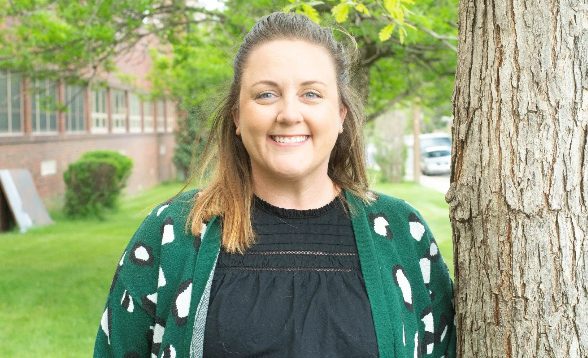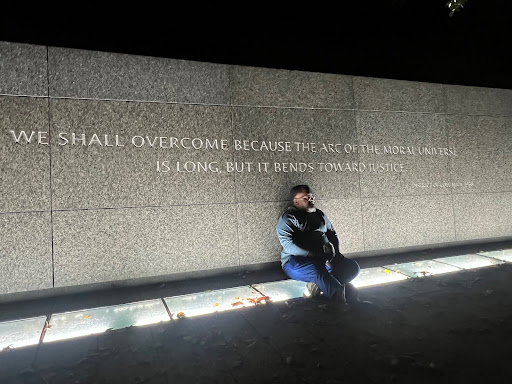Editor’s note: This article was written by Meredith Brown, who has been the principal at Cole Arts and Science Academy since 2021. She attended college at the University of Oklahoma and has an undergraduate degree in Elementary Education and a graduate degree in Educational Leadership, Curriculum, and Supervision. She moved to Denver in 2015 and started as a teacher with DPS, then became a dean of students, and then an assistant principal. During her time with DPS, she has worked at schools that serve students who are multilingual learners, students who are served by center-based programs, and schools that serve ECE students.
At Cole Arts & Science Academy we are intentional about supporting our Hispanic students in a way that feels authentic to their educational experience and to the experiences of their families living in our communities.
We are a TNLI (Transitional Native Language Instruction) school, so we prioritize educating our Spanish-speaking students to be biliterate. Our approach goes beyond teaching Spanish as a subject, but rather teaching grade-level content in Spanish.
This ensures exposure to both languages while gradually introducing more English. Our bilingual TNLI program students are instructed primarily in Spanish in the early grades and as students progress through the program, the amount of English instruction gradually increases until there is a 50-50 balance of Spanish and English instruction by fourth grade. This approach helps students become bilingual and biliterate without sacrificing their native language.
Currently, all our Spanish speaking teachers are native Spanish-speakers so they can share their personal experience in learning a difficult language, such as English, with our students. They also share in the challenges of learning a new language, addressing issues on how to navigate these experiences from someone with similar life experiences.
Our school places a strong emphasis on biliteracy, aiming for students to not only speak, but also read and write in both languages. The goal is for students to preserve their culture while meeting grade-level expectations in both English and Spanish.
New this year and something we are especially proud of is the Spanish language support of our MI students, or multi-intensive special education program. We recognized a gap in serving these students, as several of their families spoke only Spanish at home and we were only giving instruction in English. We are not obligated by law to provide special education services in Spanish, but we made it a priority.
We partnered with Denver Public Schools to pilot this program, splitting our MI classroom into two classrooms, one for K-2 and one for 3-5. We hired a native Spanish-speaking MI teacher in addition to our incredible existing MI teacher.
Now for at least 45 minutes a day, students get ELA-English or ELA-Spanish instruction as a K-5 group in their native language from a teacher whose native language is also their own. In this classroom, we focus on life skills and how to communicate feelings with their families.
I truly believe that these kids deserve to talk with their families in their native tongue and we must provide them with these skills in a way their families understand.
We want to celebrate our students and ensure they all feel welcome and supported at Cole. Our student-focused events include a biliteracy night where we honor fifth-graders’ progress towards becoming biliterate. Students share their achievements through presentations about a passion point, showcasing their family, origins, and personal growth in both languages.
Classrooms also host a Mercadito, where they choose items that best represent them as a class, then set up booths to sell these creations. This event fosters a unique connection to learning and allows students to share their cultural heritage.
Additionally, we collaborate with the Boys and Girls Club to provide more opportunities for students to celebrate their heritage and share their cultural contributions, like with our family Hispanic heritage night, or fall festival.
Part of our focus as a school community is engaging parents and families. At our Parent Advisory Committee meetings, we work with families to provide resources that they need at home and explain what the TNLI model is and how we can best work together to support students. Four of the eight administrators at the school are not of Hispanic heritage, so at these meetings, we are intentional about listening and learning from families to better serve their students.
We have been stressing the importance of reading at home with their students, but parents told us they were struggling to find Spanish books, so at our October meeting and each meeting from here on out, we will have a book table with books in Spanish for students, but for adults as well.
Ultimately, we want to support students and families through their educational journey recognizing that the best way to do that is to be authentic is our engagement and to provide opportunities where students are celebrated for who they are.
We are going to keep listening to families and learning as a school community how to better serve students, because that is what makes being a part of this school so special.




